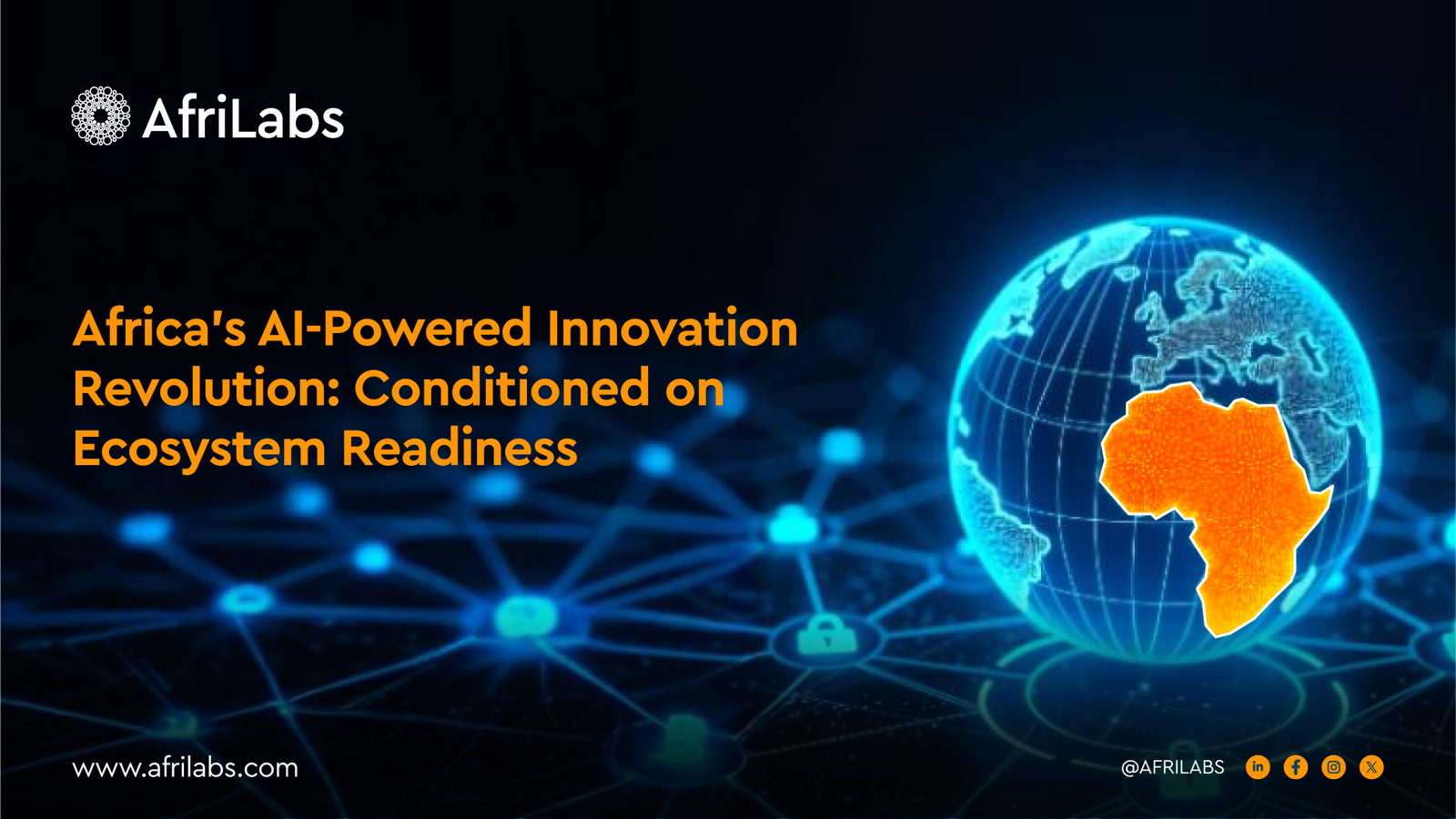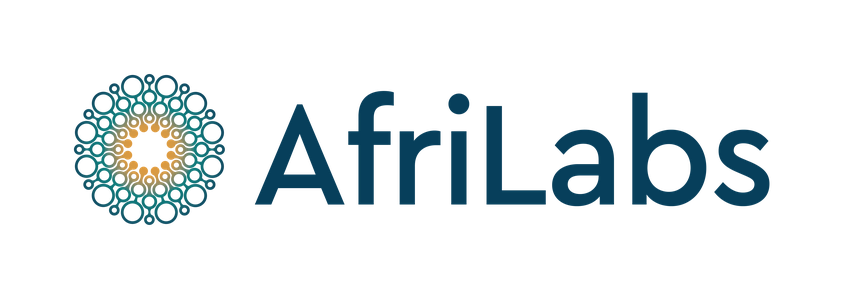Africa’s AI-Powered Innovation Revolution: Conditioned on Ecosystem Readiness

While the global conversation around artificial intelligence (AI) frequently centers on distant developments like chatbots emerging from Silicon Valley, robotic process automation transforming East Asia, or ethics dialogues convened in Geneva – a more deeply rooted and profoundly significant phenomenon is unfolding across Africa. Beneath the surface of these prominent international narratives lies a quiet yet urgent revolution situated at the dynamic intersection of innovation, snowballing youth ambition, and accelerating digital transformation.
This movement transcends mere attempts to emulate Western technological advancements; it is fundamentally about actively shaping a distinctly African AI future. At the nexus of this transformative effort stands AfriLabs, the continent’s largest pan-African network of innovation hubs, which is actively redefining how technology, talent, and indigenous creativity can be effectively mobilized to address Africa’s most pressing and urgent challenges.
Within the broader global discourse concerning AI and its potential for economic transformation, Africa is regrettably often framed as a latecomer or, worse, a passive recipient of solutions imported from elsewhere. This limiting perspective unfortunately obscures a far more critical and structural challenge: Africa’s innovation ecosystems currently suffer from insufficient support, inadequate funding, and persistent undervaluation within global AI conversations.
The fundamental question is not whether Africans are actively engaged in building with AI – they demonstrably are. The crucial determinant lies in whether the underlying ecosystems designed to foster innovation can genuinely support this work and enable its scaling to achieve widespread impact. Analogous to the insidious drain of wealth through illicit financial flows that severely constrains public service funding, Africa’s digital future is being undermined by fragmented infrastructure, extractive technological partnerships, and the sustained export of local talent to global platforms that offer minimal reciprocal benefit.
For the continent to truly reap the benefits promised by the AI economy, it must move beyond simply adopting existing tools; it is imperative that it actively shapes these tools, asserts ownership over its data, and establishes the foundational rules governing this new technological landscape.
The potential for AI to profoundly transform Africa is indeed immense. Projections from PwC suggest AI could contribute a staggering $15.7 trillion to the global economy by 2030. However, without a deliberate and concerted effort to build foundational domestic capacity, Africa risks capturing only a marginal fraction of this value, while simultaneously exporting its invaluable data, talent, and creative potential to systems constructed far beyond its borders.
Crucially, Africa possesses the world’s youngest population, experiences one of the fastest rates of mobile penetration globally and is witnessing a rising tide of dynamic tech entrepreneurs actively solving real-world problems in real time. This narrative is not one of inherent deficit, but rather one highlighting a significant missed opportunity that demands urgent rectification.
AfriLabs, leveraging its extensive network comprising over 500 innovation hubs spanning 53 African countries, is diligently working to bridge this critical gap. It provides essential infrastructure, targeted training, crucial funding, and supportive policy advocacy specifically designed to place the creation and deployment of African solutions firmly into African hands.
To speak plainly, Africa does not require generative AI tools primarily focused on mimicking celebrity voices or automating generic digital marketing tasks. What the continent genuinely needs, and what many of its visionary innovators are already actively developing, are AI-driven systems specifically engineered to:
- – Facilitate accurate diagnosis of diseases in remote rural clinics.
- – Optimize irrigation strategies for smallholder farmers to enhance yields and resilience.
- – Predict climate patterns with greater accuracy to protect vulnerable livelihoods.
- – Power comprehensive financial inclusion initiatives for the vast unbanked population.
These solutions are not mere theoretical concepts; they are tangible realities already being developed and piloted within hubs across the AfriLabs network. However, their ultimate success hinges on factors extending far beyond the elegance of code. It relies fundamentally on establishing robust networks of trust, ensuring equitable access to necessary funding, guaranteeing reliable connectivity, and cultivating supportive regulatory environments – precisely the critical areas within which AfriLabs strategically operates.
Much like the misleading narrative that portrays corruption as Africa’s single greatest developmental hurdle, the notion that Africa will effortlessly “leapfrog” into the AI economy solely on the strength of its mobile penetration is profoundly misleading. While it is true that African innovators have historically demonstrated remarkable capacity for leapfrogging technological stages, this narrative unfortunately obscures the persistent structural deficits that severely impede scaling efforts: unreliable internet connectivity, insufficient compute power, inadequate access to high-quality training resources, and extractive data practices perpetuated by external actors.
Genuine leapfrogging will not materialize spontaneously within a vacuum. It must be deliberately engineered through intentional strategy, sustained investment, and a commitment to inclusive participation. This fundamental understanding underpins AfriLabs’ strategic focus, which extends beyond merely spotlighting individual innovations to actively supporting the complex systems that render innovation possible and sustainable.
To achieve authentic and meaningful participation in the blooming AI revolution, Africa must proactively construct and safeguard its own digital sovereignty. This imperative necessitates:
– Asserting ownership over and diligently protecting African data assets.
– Training talent specifically for advanced AI development roles, moving beyond basic tech support functions.
– Substantially strengthening innovation hubs by providing shared access to crucial cloud computing resources, establishing dedicated AI laboratories, and fostering widespread ethical AI literacy.
– Developing and implementing regulatory frameworks explicitly designed to prioritize and safeguard long-term African interests.
AfriLabs is already actively collaborating with a diverse range of partners across multiple sectors to decisively move in this direction. Through impactful initiatives such as Catalytic Africa and AfriLabs Connect Deal Room (ACDR) it is providing direct financial support to promising African startups and empowering local ecosystems to thrive, not as passive beneficiaries, but as assertive architects of their own digital futures.
Governments across the continent bear a vital responsibility to act as proactive facilitators of this transformation. They must significantly invest in domestic research capabilities, actively support homegrown technological talent, and demand equitable terms from global AI companies operating within their borders.
Concurrently, international partners must transcend superficial corporate social responsibility narratives and provide tangible support for Africa’s digital sovereignty through substantial capital investment, critical infrastructure development, and genuine governance reform, moving beyond limited pilot programs towards systemic change.
AfriLabs’ advocacy efforts are increasingly centered on ensuring that these crucial conversations are initiated and driven by Africans, for the benefit of Africans, and consistently place Africa’s long-term interests at their very core.
Africa has a rich and enduring history as a continent of prolific makers, resilient builders, and ingenious solvers. The unfolding AI era represents another significant chapter that, given the requisite support and strategic focus, possesses the potential to usher in a new wave of inclusive economic growth, ethically grounded innovation, and global leadership shaped by African perspectives.
Critically, none of this transformative potential will be realized through happenstance; it demands deliberate action. We must invest strategically in our innovation hubs. We must rigorously train our people for the demands of the AI age. We must robustly protect our valuable data resources. We must build resilient and accessible digital infrastructure. And, fundamentally, we must tell our own stories of innovation and impact.
AfriLabs is actively engaged in precisely this vital work, and we extend an invitation to everyone, from governmental bodies and multilateral organizations to grassroots changemakers and individual innovators, to join us at the upcoming AfriLabs Annual Gathering (AAG2025) in Nairobi Kenya in the collective endeavor of building an AI-powered Africa that genuinely works for all its people.
For a comprehensive understanding of AfriLabs’ overall transformative initiatives in building a vibrant ecosystem, please visit our website www.afrilabs.com
